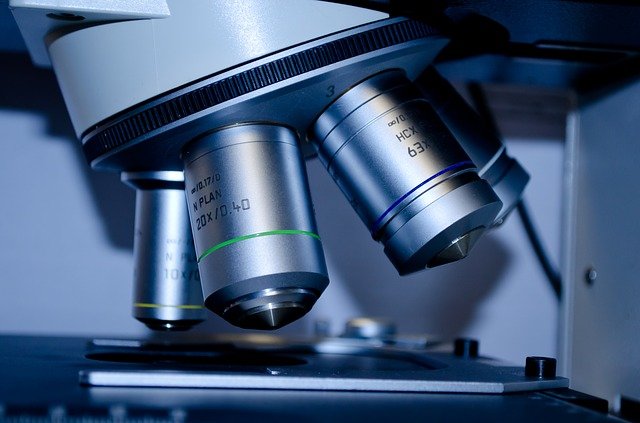The scientific method in research is an experimentation process used in exploring observations and answering questions. Not all scientists follow this process because some areas of science are more straightforward to test than others. For instance, for scientists to hypothesize how dinosaurs digested their food, they cannot fast-forward time and run hypotheses to come to logical conclusions. There are different versions of scientific research conducted by scientists, but the goal is the same at the end of the day. This is to discover the cause and effect of something.
The scientific method in research is iterative, and it follows a series of steps. New information always causes a scientist to back up and repeat some steps in the process.
Scientific research helps us understand the world around us better. Without it, we would be forced to rely on intuition. Unlike intuition and personal experience, in scientific research, knowledge is empirically grounded in tangible evidence that can be observed continually.
The scientific method follows some steps, as we will discuss below.
Process of Scientific Research
The scientific method follows six necessary steps to test ideas. The steps are as follows:
- Observe a phenomenon and come up with a question on it. This is where the scientific method starts, and you ask questions on something you observe.
- Form a hypothesis that will answer your question or suggest a possible solution. Instead of starting from scratch, you can do background research and be savvy to not repeat the same mistakes in the past. After your research, you can then form a hypothesis which is an educated guess or attempt to answer your question.
- Experiment to test your hypothesis. After the hypothesis, experiment, because intuition is unacceptable in scientific circles. This is to assert whether your prediction is true or false. During your investigation, change only one variable at a time and keep all the other conditions the same.
- Analyze the results. If your hypothesis is correct, find more evidence and counter-evidence. If your premise is false, develop a new hypothesis and start over again. Repeat the experiment severally to ensure the results were not accidental.
- Draw your conclusion and repeat the process. No scientific approach is considered perfect.
After completing the experiment, collect the results, come up with a conclusion, and see if it supports your hypothesis. Sometimes scientists find that their hypotheses were unfounded, and in such cases, they have to go back to the experiment and come up with a new inference and prediction based on the latest information learned.
- Communicate results. The Scientific method is not complete until you communicate your results to others on a display board or final report. Scientists do it by publishing their findings in journals or a poster. They can even present their findings in seminars or talks. The readers will then determine whether they support your results or not.
The scientific method is a cycle. It is iterative but makes no move in a straight line. The processes are always repeated if the hypothesis is wrong. If the theory is right, other scientists can still repeat the process to verify the findings. The process is, therefore, never-ending and refined by the iterations.
If you are having difficulties conducting a research activity or any scientific inquiry, you can outsource someone to write your research paper for you for the best results.
Principles of the Scientific Method
The scientific method is built on two principles: a theory and a hypothesis. A theory is an organized set of ideas that serves as an explanation for a specific phenomenon. A theory is often used when making predictions on observations. On the other hand, a hypothesis refers to predictions that can be tested and are arrived at logically. A hypothesis is fundamental as it bridges the gap between ideas and the real world.
The other fundamental principles in the scientific method include predictability, verifiability, and fairness.
Predictability in the scientific method implies that the theory we come up with should help us make predictions on future events. The more precise the predictions are, the stronger the idea is.
Verifiability means that the results were not accidental, but other researchers can replicate the results. Researchers should, therefore, clearly document their methods and structure the experiments for dependable products.
Fairness is when a researcher must consider all the data necessary when analyzing a hypothesis. A researcher cannot discard some data and focus specifically on some data supporting or negating a premise. A researcher should take into account all data even if it invalidates one’s hypothesis.
Application of the Scientific Method
An excellent scientific conclusion ought to be falsifiable. It should be open to criticism and can be disproved. However, if we have empirical observations that cannot be disputed, we cannot apply the scientific method in that study.
The ability to test a hypothesis and determine the practicability under different circumstances shows the extent to which we can apply the scientific method in research.
Why the Scientific Method is Important in Research
Modern Scientific research separates the inquiries of the mind from factual conclusions. Most of the aspects in science were once subjective and could not be directly measured. Scientists relied on self-reporting and observations only. The scientific method’s dawn made it possible to analyze different kinds of data and standardize the approach used.
This method allows data to be replicated and verified by different scientists under different circumstances. By repeating the findings, scientists can broaden the theories and reduce margins of error. Theories can be further tested to give further understanding instead of just being conjectures.
Good research is ethical as it acts as a method of preservation of hallmarks of humanity in academia.
The question of success in science has been the core question since the dawn of modern science. The methods used by practitioners have dramatically changed and fine-grained the contextual limitations interposed by traditional science. This method shifts our perspective, giving us a revamped account of activities in scientific circles.













